905-832-0036
info@woodbridgedentistry.ca
Minor Oral Surgery
While it is always important to take care of your teeth and gums, this is particularly true following oral surgery.
The following information serves as a guideline for what to do or what to avoid after minor oral surgery. You should follow the direction or advice given to you from your dentist or oral surgeon. Also, if you experience any of the following issues after oral surgery, contact your dentist or oral surgeon who performed the procedure immediately: It is advised to do the following after minor oral surgery:
Mobility
- Rest for at least forty-eight hours and keep your head elevated.
- Call your doctor or oral surgeon if the pain is not subsiding within forty-eight hours or if you feel any further concern developed.
Bleeding
- Keep gauze pad in your mouth over wound for at least an hour no matter how soggy it gets; do not chew on the gauze pad or suck the affected area.
- Drink cool liquids. Hot beverages like coffee or tea can trigger bleeding.
- Do not drink alcohol or smoke after the first two weeks of surgery as healing will be prolonged.
Swelling
- If you have swelling, apply a cold compress against your face to the affected area; ice cubes in a towel or a bag of frozen vegetables; alternate the compress ten minutes on and ten minutes off.
- Do not apply heat to the affected area within twenty-four hours of surgery.
Jaw Soreness
- Massage gently if your jaw muscles are not too sore with a warm, damp face cloth.
- Eat soft foods such as pasta, bananas and eggs.
- Drink beverages including milkshakes, milk and juices.
- If after a week or so, your jaw is still sore and hard to open, call your oral surgeon.
- Do not force your mouth to open.
- Do not chew gum or eat hard or sticky food.
If you experience any of the following, call your oral surgeon or dentist immediately:
- Excessive bleeding four or more hours after surgery
- Nausea or vomiting
- Fever
- Persistent pain one full day after surgery
- Swelling two or more days after surgery
Pain
You will be given a local anesthetic, or "freezing" to numb the area of your mouth which surgery is to take place. While your mouth is frozen, it is important to take care to avoid biting your cheek, lip or tongue.
The numbness usually wear off within a few hours following the surgery, however, it is normal to experience some pain after the anesthetic wears off. The level of discomfort you experience will depend on the type of surgery you had, as well as your body's ability to recover.
You are likely to experience the most pain for the first twenty-four to forty-eight hours following surgery. It is recommended to rest during this time. You may experience some soreness, tenderness or discomfort that may last for a few days around the surgical site, which is considered normal.
What to do:
- Talk to your dentist or oral surgeon. Your dentist or oral surgeon may prescribe medication to help with the pain and an antibiotic to prevent infection.
- Call your dentist or oral surgeon if the pain persists for a prolonged period, or worsens.
- Follow the advice of your dentist or oral surgeon, as well as your pharmacist when taking prescribed medication.
What not to do:
- Never take more medicine than prescribed.
- Never drink alcohol while taking medication.
- Never drive a vehicle or operate heavy machinery if you are on medication that could cause drowsiness or alter your perception in any way.
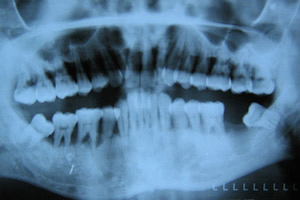
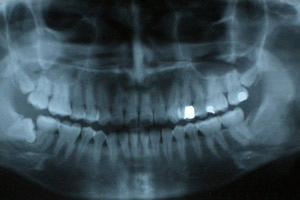
Pain
You will be administered a local anesthetic ("freezing") to numb the area of your mouth on which surgery is to take place. While your mouth is frozen it's important to take care to avoid biting your cheek, lip or tongue.
The numbness usually wear off within a few hours following the surgery, however, it's normal to experience some pain after the anesthetic subsides. The level of discomfort you experience will depend on the type of surgery you underwent, as well as your body's ability to recover.
You are likely to experience the most pain for the first twenty-four to forty-eight hours following surgery. It's best to rest during this time. Some soreness, tenderness or discomfort may last for a few days afterward around the actual location in your mouth where the surgery took place this is normal.

What to do:
- Talk to your dentist or oral surgeon. He/she may prescribe medication to help with the pain and an antibiotic to stave off infection.
- Call your dentist or oral surgeon if the pain persists for a prolonged period of time, or worsens.
- Follow the advice of your dentist or oral surgeon, as well as your pharmacist when taking prescribed medication.
What not to do:
- Do not take more medicine than prescribed.
- Do not drink alcohol while taking medication.
- Do not drive a vehicle or operate machinery if you are on medication that could cause drowsiness or alter your awareness in any way.
Bleeding
Following surgery, your dentist will likely administer a gauze pad to reduce the amount of bleeding and allow the blood to clot. The gauze should be left in place for at least an hour after surgery. You may press firmly on the pad using your teeth, but refrain from chewing on it.
Bleeding may persist for the first hour or two following surgery, and the afterward the area may continue to "ooze" for up to twenty-four hours. If you are unable to control the bleeding after four hours, contact your dentist or oral surgeon.
What to do:
- Keep firm, constant pressure on the gauze pad covering the wound this can be done by closing your teeth on the pad.
- Leave the pad in place for at least an hour following oral surgery.
- If bleeding persists past an hour, replace the used gauze pad with a fresh one and reaffirm pressure on the area for another hour.
- Rest while recovering and keep your head raised as it slows the circulation of blood to the area that is healing, allowing the blood to clot.
- Brush and floss teeth as usual, but be gentle and take care to avoid the site of the surgery so as not to aggravate it and possibly reignite bleeding. Also use a minimal amount of water.
- A full day following surgery, gently rinse your mouth with warm water. You dentist or oral surgeon may also suggest you add half a teaspoon of salt to a cup of warm water each time you rinse. Do this four to five times a day for three to four days. This helps keep the wounded area clean and free of infection.
- If bleeding persists beyond four hours, contact your dentist or oral surgeon.
What not to do:
- Do not rinse your mouth within the first twenty-four hours following surgery.
- Do not chew on the gauze pad or suck on the wound.
- Avoid hot liquids such as coffee, tea or soup as they tend to increase blood circulation and could restart the bleeding.
- Avoid alcohol and tobacco for at least the first two weeks following surgery. They delay the healing process and leave you more susceptible to infection.
- Do not strain yourself for at least two full days following surgery.
- Do not drive a vehicle or operate machinery if you are on medication that could cause drowsiness or alter your awareness in any way.
Swelling
You may experience swelling of your mouth and face for the first twenty-four hours following oral surgery. It is not uncommon for swelling to last five to seven days. You may also experience bruising which may last for up to ten days after your procedure.
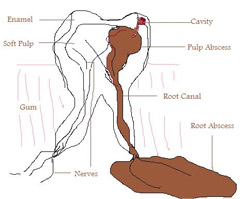
What to do:
- Place a cold compress on the swollen area. Hold the compress in position for ten minutes then remove the compress for ten minutes. Repeat.
- Continue this process for the first twenty-four hours following surgery.
- No sooner than the second day, place a warm compress on the affected area to increase blood flow and help decrease swelling. Take care not to use anything hot enough to burn your skin.
- If the swelling worsens beyond forty-eight hours following surgery, contact your dentist or oral surgeon. Do the same if swelling does not subside after seven days.
What not to do:
- Do not apply heat to the affected area during the first twenty-four hours following surgery as this will worsen the swelling.
Sore Jaw
You may find it difficult to manoeuver your jaw for up to ten days following oral surgery.
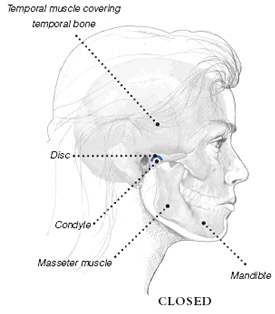
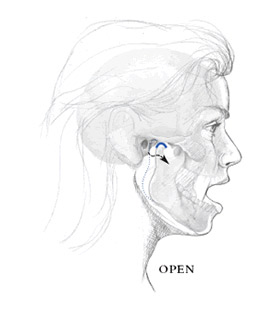
What to do:
- If the muscles of your jaw are not overly tender, massage them gently with a warm, moist facecloth.
- Eat foods that are easy to chew or consume such, such as shakes.
- If you have difficulty opening and closing your jaw, or the muscles of your jaw are still sore seven to ten days following surgery, contact your dentist or oral surgeon.
What not to do:
- Do not force your mouth open.
- Avoid chewing gum and eating hard or chewy foods.
- Avoid hot liquids such as coffee, tea or soup.


